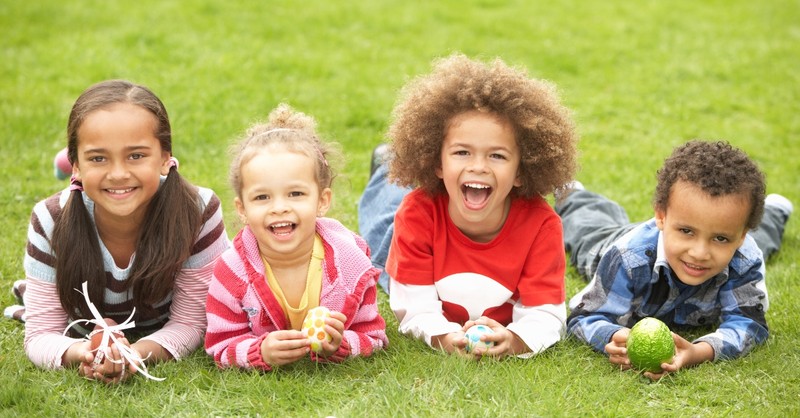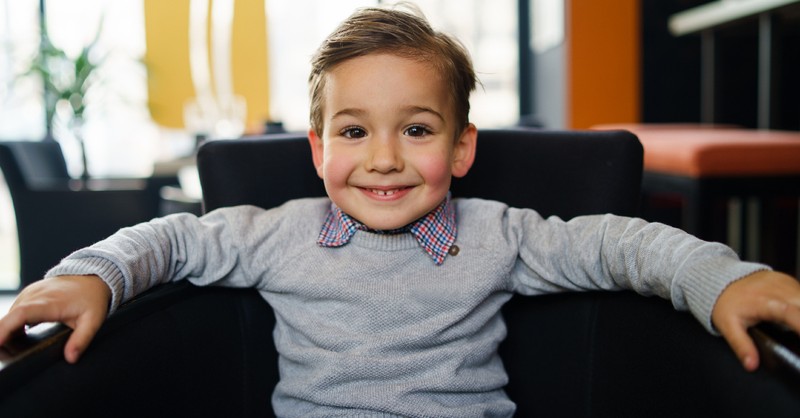
What Are the Signs of True Faith
in Your Children?
Meg Bucher, Writer and Author
Feb 01, 2021
“But the fruit of the Spirit is love, joy, peace, patience, kindness, goodness, faithfulness, gentleness and self-control; against such things there is no law.” (Galatians 5:22-23)
My 10 year old threw one arm around her momma and the other in the air as we sang our favorite worship song. Real faith moves. She had been bullied to her breaking point, and it led her to straight to Jesus. I love that memory fiercely, but I hold it loosely. Transformation is ongoing for all of us – every journey littered with highs and lows.
I still consider myself a parenting rookie. Raising kids drives me to my knees in prayer more than I could have ever understood it would when my babies were just babies. In our society, we talk a lot about self-care. My parenting self-care strategy is to get quiet with Jesus. The more time I make to faithfully seek Him, the more He prepares me to survive another day of motherhood. “A Christ-centered life begins with realizing that the source of everything we are is the Lord,” Paul Tripp explains. “He created us, he owns us, he gifted us with talents, he authors our story, and every blessing that we receive comes from him.”
Christ-centered lives parent from a place of humble submission instead of pride and authority. God has placed us purposefully to parent the particular children we are raising. He intimately knows and has purposefully designed us and them. Raising children to be Christ-centered in a world waving a self-centered banner is hard, but not impossible. Through the power of Christ in us, let’s pray our children see what it’s like to live a Christ centered life, and choose to live that way as well.
Photo Credit: © Getty Images/myshkovsky

A Prayer for Seeing True Faith
in Your Children
Father,Today as we talk about signs of our children’s faith, we ask You to provide clarity and encouragement. We are imperfect people, and our children are imperfect too. There are bound to be clashes of character and will, disagreement and misunderstandings. Parenting is challenging. Growing up is challenging. Meet us, and our children, in our challenges daily, Father. May we be slow to speak when we want to snap, and patient when we’re rushing to be on time. Let us lean into Your timing, Your plans, Your ways, and Your will, Father.We pray our children would honor and obey us, so they receive Your full blessing! And we pray for You to equip and guide us to lead them in Your Truth, to live Your Truth out each day, and to love others the way You command. Let our lives bring glory and honor to You. May we be the biggest witness for our children. Let our lives, imperfect and messy, but faithful and honest, be signs of our faith to them.Father, You reign sovereign over all. Parenting can make us feel frantically out of control. Bless and uphold us. Calm our hearts, and continue to minister to the anxieties of our hearts as we lift them up to You. Thank You for Your compassionate care for us, Lord Jesus. We pray in Your powerful name,Amen.
The illusion of perfection is something we need to release into the hands of our heavenly Father. Perfect kids and easy parenting are no one’s reality. God is faithful to remind us of His faithful pursuit of our children, regardless of our messy human nature, and the sin that so easily entangles all of us. Through mistakes, mess-ups, groundings, misunderstandings, long-winded lectures, disagreements, sassiness, and drama, God is faithful and good. I have watched my children grow in their faith as the teen years creep in to our reality, and I see the work of Jesus shining through them in the following ways.
Photo Credit: © Getty Images/Michael Truelove

1. The Way They Treat or Serve Others
“Therefore encourage one another and build each other up, just as in fact you are doing.” (1 Thessalonians 5:11)
Every time we drive by sirens and flashing lights, my youngest drops her head to pray. True faith has an instinctual reaction to pray for others. Aloud, she lifts up perfect strangers, and close family and friends. Christ-centered lives face outward.
Following Jesus allows us to see others as He sees them. Christ commanded us to love God, and love each other. True faith shows up for the kid sitting alone at the lunch table, or stands up for the one being bullied. Out of empathy gained from each unique situation, true faith activates each lesson learned to reach out in love and encouragement for someone going through what they have gone through.
Kindness to siblings and friends is a sign of faith in action. Encouraging others, finding common interests with new friends seated next to them in class, and asking for prayer on account of others is a sign of true faith. The way we treat others puts the true nature of our hearts center-stage.
The apostle Mark wrote, “For even the Son of Man did not come to be served, but to serve, and to give his life as a ransom for many” (Mark 10:45). Christ-centered lives seek to serve others. Children may ask to donate to the local food bank or food drive at church or school, drop off outgrown clothes or pass them on to friends or family in need. Often the things our children struggle with and overcome through Christ will be the very conduits for change He will use them in for the same situation in another’s life. As children grow older, their concerns grow deeper alongside the issues they work through themselves. Being the new kid at school lends empathy for other newbies as they arrive, and having been the victim of bullying allows a deeper and more compassionate perspective to lead the kindness movement among their peers.
Photo Credit: © Getty Images/omgimages

2. Confidence Rooted in Christ
“But blessed is the one who trusts in the LORD, whose confidence is in him.” (Jeremiah 17:7)
Confidence in Christ is a humble submission and commitment to work hard with the talents and gifts God has given us. Everything we do is meant to glorify Him. True faith is hard-working, and gives glory to God. We live in a world that encourages self-love. Pride can deceitfully creep into our children’s consciousness, not only recognizable by arrogance, but in reverse as they put themselves down and count themselves out. Godly confidence is humble, hard working, and God-honoring. True faith chooses to believe the truth about who God says we are, rather than believe self-destructive lies.
The apostle John recorded these words of Jesus: “As the Father has loved me, so have I loved you. Now remain in my love” (John 15:9). When children ask for wisdom, that’s our queue to bring God’s truth into their situation. Faithfully, when they are obedient to listen and apply His word to what they're walking through, they learn where to come back again next time. Loving people sounds easy until all the spots at the lunch table fill up and loneliness sets in. It’s easy to be bitter when left out and feeling lonely, instead of looking around to see who God has placed in their lives. It’s also easy to forget about the lonely when seated at a table full of friends. On both sides of the table, those with true faith choose to allow the love and peace of Christ to guide them.
Psalm 119:103 reads, “How sweet your words taste to me; they are sweeter than honey.” Craving God’s word, whether it means pouring through the Bible themselves or asking us for more of His wisdom, is a sign of true faith. Paul wrote to the Thessalonians, “pray without ceasing” (2 Thessalonians 5:17). Let me assure you, nothing is too trivial for a junior high girl to pray about! Our children, no matter what age, will learn to turn not only to us, but to God in prayer when they or those they know need help or healing. True faith produces continual and conversational prayer, bookended only by sleeping and rising. As we all grow in our faith, we learn to stay tuned to our Savior, always.
Photo Credit: © Unsplash/Ben White




